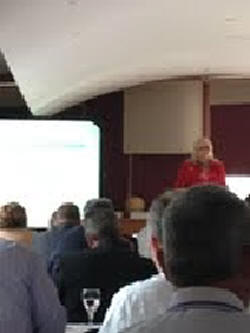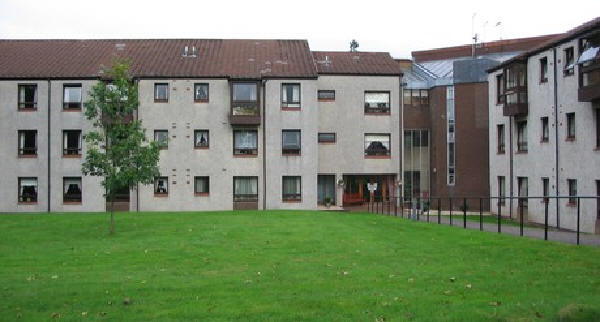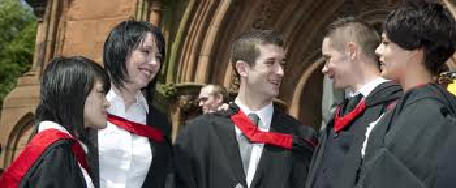|
We had the pleasure of meeting up with some 58 US
delegates of the National Conference of State Legislature (NCSL) this
week. You can read the Parliament’s Press Release about the visit here:
http://tinyurl.com/owy8jyr
The delegates made their first visit outside of North
America at the invitation of our Presiding Officer, the Rt Hon Tricia
Marwick MSP, when she visited the US earlier this year. They came from
New Hampshire to Hawaii and Alaska to Georgia for a two-day conference.
There was a packed programme of events, addresses and
discussions across two days. As you would expect of us Scots, we offered
a very warm welcome as well as a lot of information about our country,
its structures, historical connections with the US – including
handwritten letters by George Washington, Thomas Jefferson and Benjamin
Franklin – the future for our economy, the constitutional debate, our
work in international development, our part in the global energy market
and what kind of legislative leadership works best in a democracy.

Christina addressing
the NCSL delegates during the Conference
And that’s just a brief outline. As you can guess,
we’ve all been working very hard. Recess isn’t all rest and
recuperation, you know!
The legislative leaders included Speakers, Senate
Presidents and House leaders and they met with a distinguished group of
excellent speakers across the different sessions.
We featured Scottish Historian, Tom Devine (find his
books here:
http://tinyurl.com/pupoygn) , James Mitchell, who’s Professor of
Public Policy at Edinburgh University, Barbara J Stephenson, head of the
US Embassy to the UK, our own Humza Yousaf MSP, Minister for External
Affairs and International Development and several other very influential
figures that I just can’t fit in here but you can find out more about
all of them from the link in the first paragraph.
I chaired one session headed ‘The Global Economic
Outlook and State Budgets’ – not what you’d call a small topic – at
which Nigel Pain, who is the Head of the Economic Outlook Unit in the
Organisation for Economic Co-operation and Development (OECD) Economics
Department. It’s his job to set out the global economic prospects and
wider policy requirements. He is a hugely impressive speaker with a
thoroughly awe-inspiring background in research and forecasting.
The session led into a Q&A with lots of lively and
absorbing debate from intelligent, thinking, delegates who are all
seeking to better the common good. It is the kind of debate I enjoy most
– demanding, exhilarating and constructive.
I have been in and out of lots of the other sessions
as well. It was great to have the opportunity to meet and listen to so
many influential Americans and to hear the speakers presenting their
research and forecasts. Here’s to continuing healthy debate, the heart
of democracy, and something the SNP embraces whole-heartedly.
We had another of those non-stories that the No
Campaign – known among its own members as project Fear, we recently
discovered – this latest is about Trident. Readers will know that the
SNP wants rid of Trident. So do many other non-SNP voters. We are weary
of the wasted money and we don’t want nuclear weapons of any kind on
Scottish soil.
I’d say it was barely worth mentioning because it’s
such a scaremongering idea but I wanted to include it because it shows
up, yet again, to just what depth Better Together will sink.
It all started here in The Guardian newspaper:
http://tinyurl.com/nqowwta with former Scottish MP and Labour
chancellor Alistair Darling claiming that Westminster would make the
Faslane base a United Kingdom sovereign territory if the people of
Scotland vote Yes in the Referendum. That would make it a bit like
Cyprus for example.
Clearly the idea was
nonsense and even the Prime Minister’s office at 10 Downing Street had
admitted that within a few hours of the original story.
Of course Scotland isn’t
going to say yes to such a daft application. Trident belongs to
Westminster. It’s entirely up to that Government, post-independence,
exactly where and how they want to relocate it although a number of
experts have said the whole process need take no longer than a few
months.
I’ll leave it to our own
Deputy First Minister, Nicola Sturgeon, to summarise the whole silly
story:
“Downing Street may
now be denying this preposterous threat from the Ministry of Defence,
but the cat is out of the bag that that the UK Government must at least
be examining contingencies for a Yes vote.
“Instead of dreaming
up madcap scenarios in Whitehall bunkers to hang on to part of an
independent Scotland, the UK Government should sit down with the
Scottish Government in the light of day to discuss the range issues that
will require to be negotiated if Scotland votes Yes – including removing
Trident from Scotland as quickly as possible.
“The No campaign is
in disarray – the MoD briefed an outrageous story about bullying
Scotland into keeping Trident on the very day that Alistair Darling
tries to pretend the No campaign isn’t negative, and David Cameron is
forced into denying something that has come out of his own government.
“The No campaign are
running scared of their own Project Fear – and people in Scotland are
beginning to look and laugh at the absurdities that are coming out of
it.
“This latest episode
has left the No campaign looking ridiculous – and it confirms that only
a Yes vote next September will empower Scotland to get rid of Trident,
and the money saved help build a fairer society and stronger economy.”
Away from global politics,
and thinking closer to Hamilton, I put up a Parliamentary Resolution
seeking support for Millar Park Housing in Hamilton on its 40th
anniversary. This housing project was developed by Trust Housing
Association (www.trustha.org.uk)
which is a solid backbone of social housing in Scotland. It has created
more than 100 thriving communities for more than 2,500 mainly older
people, allowing them to enjoy an active social life and to continue
living independently.

Millar Park sheltered
housing in Hamilton
These developments are
vibrant and filled with local events so that residents can interact and
enjoy making friends. Its key values lie in caring for the residents,
providing excellent care and services as well as value for money and
professionalism.
Reshaping our care for
older people is a core concept for the Scottish Government and an area
we are building and strengthening all the time. We introduced free
personal care so that more people could stay in their own homes and we
have just been awarded two three-star awards by the European Innovation
Partnership for Active and Health Ageing, one of only three European
regions to be winners of that accolade.
At the younger end of the
age spectrum, and as a mother of two boys, I’ve learned that education
really is one of the greatest gifts we can give our children. By taking
an interest in their development at school and beyond, we’re doing more
than just helping them to pass exams.
That’s why I
was so pleased and privileged to have been a guest last week at the
graduation ceremony for students of the University of the West of
Scotland, held in Hamilton Town Hall.

Graduates at
the Hamilton Campus of the University of the West of Scotland
It was a
particularly special event, as Professor Seamus McDaid - a hugely
inspirational figure who has done a huge amount to build up the UWS’s
reputation over the past eight years - is retiring as Principal.
He’s done a
fantastic job and deserves all our thanks and praise for his dedication
to his students, education and research. I wish his successor, Professor
Craig Mahoney, well as he works to build on Seamus’s achievements.
As I looked
around the hall I saw young people full of hope with great aspirations,
ready to carry on learning in the workplace and build great careers for
themselves. Some may leave Lanarkshire and explore the world. Many will
eventually come back. They are our future, and we need to give them
every opportunity to flourish.
Of course, the
Scottish Government is already doing that with its policy of fee-free
education. This means students qualify for higher education based on
their ability to learn, not their ability to pay.
How many of
those graduands would have been in Hamilton Town Hall if they had been
forced to shell out many thousands of pounds towards their own
education? It doesn’t bear thinking about.
Unless of
course you’re the Tory-Lib Dem coalition, which has imposed massive fees
on youngsters in England, or Scottish Labour, which has signalled that
it will do the same here if it ever gets returned to power at Holyrood.
Delighted
though I am for those receiving their awards from the UWS last week,
it’s important to remember that educational attainment isn’t just about
getting high quality degrees. Vocational education and skills
development is every bit as important.
That’s why it’s
great to see that the number of Scottish young people staying in
employment, training and education - so-called positive destinations -
is now at its highest level on record, at a remarkable 89.5 per cent. Of
course, we must strive to get as close to 100 per cent as we can, but
this is good and creditable progress.
It’s private
sector companies as well as our educators which are playing their part.
Here in South Lanarkshire, for example, initiatives such as the £2
million Scottish Gas Energy Academy and Scottish Power’s new development
will be playing a big part in training local people in the skills of the
future.
I’m pleased
that local schools are keen to engage with this sort of project - I’ve
spoken to five of our headmasters about this recently, and they’re all
really keen to become involved.
Add to all this
the Scottish Government’s major commitment to Modern Apprenticeships -
it is meeting its target of 25,000 placements a year - and you can see
that there’s a real desire to encourage our young people to be the best
they can be.
Yes, there’s
still work to do. But it’s terrific to see Hamilton and Lanarkshire
taking a lead in this area. Our kids are our greatest asset, and they
deserve nothing less. |

